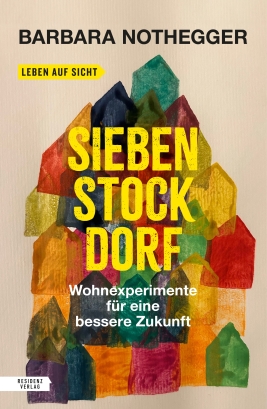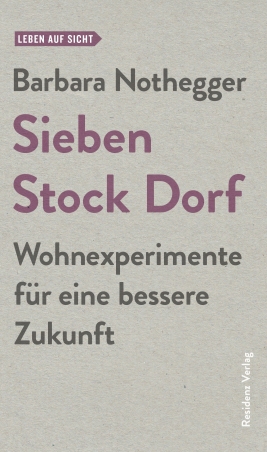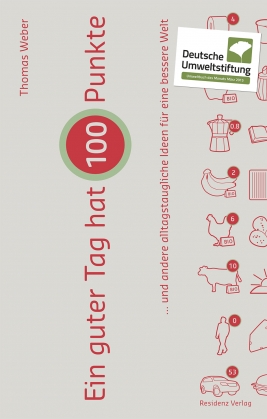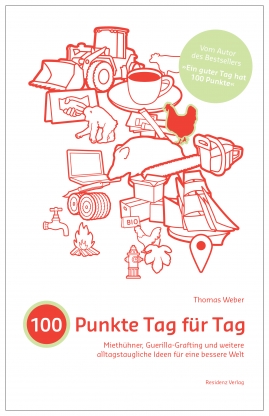
Barbara Nothegger - Sieben Stock Dorf
Wohnexperimente für eine bessere Zukunft
Ein unterhaltsamer und lebensnaher Erfahrungsbericht über das Wohnen in Gemeinschaft.
Wie wir wohnen, beeinflusst, welches Leben wir führen – ob wir einsam sind, wie viel wir zur Klimawende beitragen, wie hart wir arbeiten müssen, um die Wohnkosten zu decken. Als Barbara Nothegger ein neues Zuhause für ihre junge Familie suchte, trieben sie genau diese Fragen an. Trotz vieler Einwände wagte sie das Experiment und schloss sich mit ihrer Familie einem gemeinschaftlichen Wohnprojekt in Wien an. Hundert Menschen bauten sich ein Haus mit vielen Gemeinschaftsräumen und Freiflächen, die die Bewohner*innen zum Zusammenkommen, Teilen und Austauschen einladen. Nach mehr als zehn Jahren im Wohnprojekt zeigt Nothegger in einer humorvollen Anleitung, wie eine moderne Gemeinschaft gelingen kann und gute Nachbarschaft ein klimafreundliches Leben erleichtert.
Book details
Überarbeitete und erweiterte Neuauflage. Aus der Reihe „Leben auf Sicht“.224 pages
format:140 x 215
ISBN: 9783701736393
Release date: 14.04.2025
License rights
- World rights available








